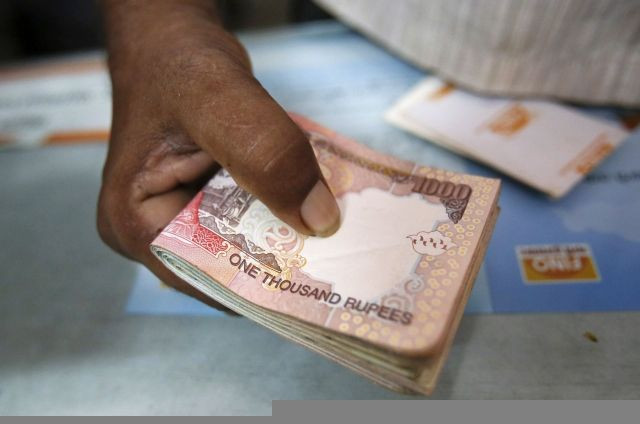As The Rupee Continues To Crash, How Will the Central Bank Of India And Private Indian Banks Deal With the Crisis

After the rupee plummeted to an all-time low against the dollar on Wednesday, experiencing a 24 percent loss of value in just three months with its fall from 55 to 68 rupees to the dollar, many of India’s banks are expecting to see their performance falter as borrowers default on loans and increase the number of bad debts on balance sheets.
The rupee has been in terminal decline since early June, and analysts are predicting it could hit 70 or even 75 before rebounding by 2014.
"The free fall of the Indian rupee against all major currencies of the world is a worrying factor across the Indian economy,” said Aroop Zutshi, global president and managing partner at Frost & Sullivan.
According to a report by Sheetal Kothari, research analyst for business and financial services, the falling rupee is a huge cause of concern for policymakers, corporations and the public, as it impacts not only the economy but also the daily lives of consumers in many different ways, including limiting access to loans and increasing interest rates.
“The bank borrowings are expected to increase, and there is a very high chance that many borrowers will default on loans, thereby increasing bad debts and impacting the banks’ balance sheets,” said Zutshi.
While currency depreciation has been an economic issue in other major emerging economies, including Brazil and Indonesia, after the U.S. hinted its intention to reduce the repurchase of treasury bonds, India has been hit the hardest.
In 2008, India loosened bank regulation and changed the way the industry dealt with bad debt. The aim was to give borrowers some room to deal with the subprime housing chaos that started thousands of miles away in the U.S. However, five years later the policy has come back to bite the Indian banks, as more than 9 percent of all loans have turned sour, similar to the levels seen more than a decade ago when Indian banks were last in trouble. The State Bank of India reports that 25 percent of its loans are now nonperforming and the 10 most indebted banks have 13 percent of the total.
A lingering problem obscuring the true picture of the banking sector is that many banks continue report that their loans are still performing, despite the poor state of their finances, according to Ashish Gupta of Credit Suisse.
Regulators are trying to force banks to recognize the bad debts, of which 32 percent are owned by firms that have operating profits so small they cannot pay the interest.
Return on equity, a key measure in the banking sector, is likely to drop in the coming quarters, says Zutshi. It is estimated the drop will be around 10 percent and that consumers' ability to borrow at higher interest rates will dampen their ability to purchase white goods and services, resulting in a slowdown in the overall economy.
Corporations, on the other hand, are facing pressure across the board from the Indian currency crisis – slow GDP growth, declining consumer spending in the face of inflation, and high interest rates.
Additionally, the interest coverage ratio of the Indian government stands at 1.1 (foreign debt of $250 billion against reserves of $250 billion) and has declined by at least 3.5 times in the past five years since 2008, according to Kolthari.
At the Central Bank of India, whose incoming governor Raghuram Raja will attempt to turn the tide, the currency crisis has been felt keenly as attempts to alleviate economic problems and stop the rupee’s implosion have failed. And with limited reserves of hard currency, growth in the Indian economy is unexpected in the coming year.
“In order to increase foreign direct investment, banks will have to offer better interest rates, which will increase cost of borrowing by 3 to 4 percent. The Reserve Bank of India will have to play a major role in building confidence among consumers and also support the banks in the short term. Overall, Banks in India will be under severe stress. This is happening across all emerging nations, including Russia, China and Brazil," said Zutshi.
© Copyright IBTimes 2025. All rights reserved.






















